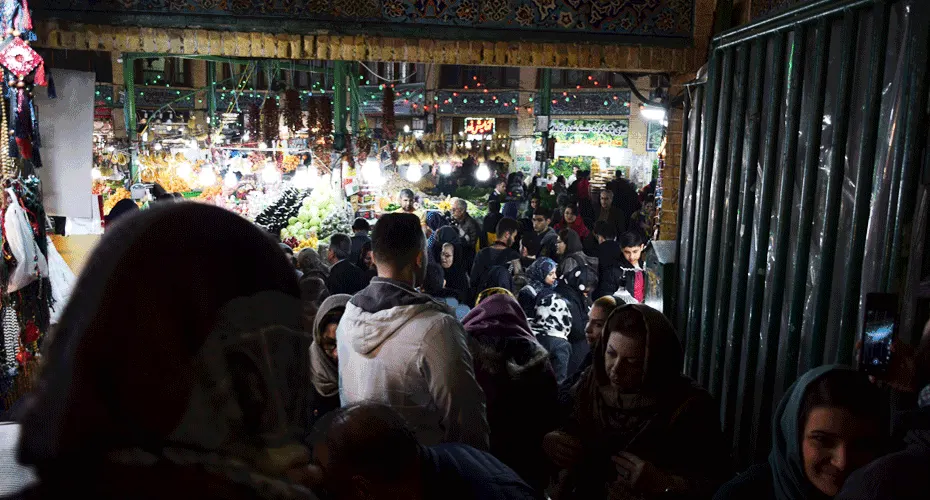Centre for Persian and Iranian Studies (CPIS)
The Centre for Persian and Iranian Studies (CPIS) was created in 2008 to coordinate and enhance the activities of scholars at the University of Exeter, within history, literature, philosophy, religious studies, politics, classics, and other fields relating to Iran and the Persianate world. The Centre advances a strong inter- and trans-disciplinary vision aimed at integrating different intellectual and research traditions from the social sciences, humanities as well as health and environmental sciences.
Every term, CPIS hosts a series of seminars and workshops which see the participation of researchers and students from across the University as well as outside Exeter and abroad. The Centre is based in the Institute of Arab and Islamic Studies.

In this section
Studying with us
Undergraduate and Postgraduate level
We offer a number of optional modules at Undergraduate and Masters level. We cannot guarantee these will run in all years.
- ARA1013 - Elementary Persian
- ARA1020 - Elementary Persian 2
- ARA1021 - Introduction to Persian History and Culture
- ARA2141 - Intermediate Persian
- ARA2151 - Intermediate Persian II
Postgraduate Research
To students pursuing study towards an MPhil or PhD in Arabic and Islamic Studies, we offer supervision in the following areas:
- Contemporary Iranian politics and international relations
- Iranian history, particularly since 1700, but also earlier periods
- Intellectual history of Safavid and Qajar Iran
- Religion in Iran, from the Seljuk period to the present
- Iranian Shi'ite political and legal thought
- Shi'ite ritual and religion
- Sufism in Central Asia, the Middle East, North Africa and India
- Classical Persian literature
- Modern Persian literature
- The Persian novel
- Civil Society in Iran
- Ethnicity, nationalism and identity
Research projects
Our staff are involved in a diverse range of innovative collaborative projects, a selection of which are listed below.
Events
We host a number of research seminars, workshops, and assorted events. You can find a list of upcoming and past events in the drop-down menus below.
Upcoming events
There are no current events to display, but please come back soon for updates.
Past events
Mawlana Rumi Review
The Mawlana Rumi Review is a publication of the Rumi Institute, Near East University, Cyprus, and the Rumi Studies Group of the Institute of Arab and Islamic Studies here at the University of Exeter. The Mawlana Rumi Review published articles, reports, review articles and book reviews in English and French.
The Mawlana Rumi Review is an academic review devoted to the life, thought, poetry and legacy of Jalal al-Din Rumi (d. 1273), Islam’s greatest Sufi poet and author of some 60,000 verses composed in the widest variety of metrical patterns ever used by any Persian poet. Rumi's mystical epic the Mathnawi, is, after the Qur’an, probably the most frequently commented-on work in all of Islamic literature. For the past 700 years he has enjoyed continuous celebrity across a number of continents. Over the past three decades, Rumi has also been the best-selling poet in North America, and today he is as famous in India, Iran and Afghanistan as he is in Tajikistan and Turkey (where he is considered to be Turkey’s national poet).
Institutional access for the Mawlana Rumi Review is available via Brill.
The Rumi Studies Group
The Rumi Studies Group supports scholarship, publication and research into the philosophical poetics, mystical teachings and legacy of Mawlana (an honorific meaning ‘Our master’) Jalal al-Din Rumi (d. 1273) - arguably the most important Sufi poet in the Islamic world. In the USA, Rumi has been at the best-selling poet for several decades now.
One of the most prolific poets in any language in the world, his lyrical output amounts to some 35,000 verses (3230 ghazals composed in the widest variety of metrical patterns ever used by any Persian poet), while his epic mystical work, the Mathnawi, totals over 25,000 verses.
In modern Turkey, even though all his works were in Persian, he is currently considered to be a Turkish national icon, his death-day celebrated by a special national holiday (Dec. 17th) every year, during which the President, Prime Minister and other dignitaries all gather in Konya (the city where he lived most of his life and died) to give speeches about his poetry, mysticism, importance and influence, and to watch the Whirling Dervishes of the Mevlevi Sufi Order (originally founded by Rumi) perform their sacred dance. His poetry is also a source of national pride in Iran and Afghanistan, where his iconic cultural stature is akin to Shakespeare in Great Britain. While Rumi’s importance has been recognized in Persianate countries for over a century now (scholarship and research on his oeuvre is a large industry in Turkey and Iran), in the West his popularity has only recently reached a stage where a journal devoted to legacy and thought is demanded.




